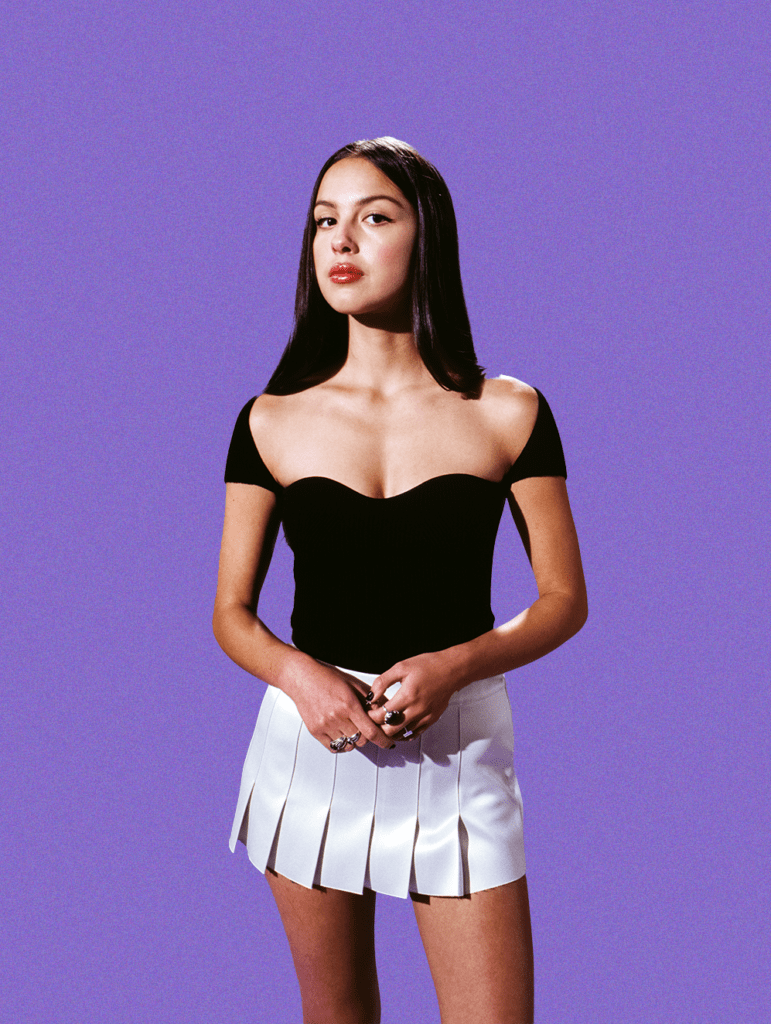Exploring The Controversies Of Olivia Rodrigo Deepfake Technology
In recent years, the rise of deepfake technology has sparked serious discussions surrounding privacy, consent, and the ethical implications of creating hyper-realistic digital content. Among the many individuals affected by this technology, pop sensation Olivia Rodrigo has found herself at the center of a heated debate. As a talented singer and actress, Olivia’s image and likeness are highly sought after, making her a prime target for deepfake creators. The intersection of her celebrity status and the potential misuse of deepfake technology raises important questions about the implications for her career and personal life.
As Olivia Rodrigo continues to capture the hearts of millions with her music, the emergence of deepfake videos featuring her likeness has prompted concern among her fans and the general public. These videos can spread misinformation, create false narratives, and even damage reputations. Understanding the technology behind deepfakes and its impact on individuals like Olivia is crucial in navigating this new digital landscape. How can we protect public figures from the misuse of their image? And what steps can be taken to combat the potentially harmful effects of deepfake technology?
In this article, we will delve into the world of Olivia Rodrigo deepfake videos, exploring her biography, the nature of deepfakes, and the societal implications of this technology. By examining the current landscape, we aim to shed light on how deepfake technology poses both opportunities and challenges for artists, celebrities, and their fans.
Who is Olivia Rodrigo?
Olivia Rodrigo is an American singer-songwriter and actress who gained fame for her captivating voice and relatable lyrics. Born on February 20, 2003, in Temecula, California, she first rose to prominence through her role in Disney's "High School Musical: The Musical: The Series." However, it was her debut single, "drivers license," released in January 2021, that catapulted her into international stardom. The song broke numerous streaming records and resonated with audiences worldwide, establishing Olivia as a significant force in the music industry.
Olivia Rodrigo’s Personal Details and Bio Data
| Attribute | Details |
|---|---|
| Name | Olivia Rodrigo |
| Date of Birth | February 20, 2003 |
| Birthplace | Temecula, California, USA |
| Occupation | Singer-Songwriter, Actress |
| Genres | Pop, Alternative Rock |
| Years Active | 2015 - Present |
| Notable Works | "drivers license," "deja vu," "good 4 u" |
What Are Deepfakes and How Do They Work?
Deepfake technology refers to the use of artificial intelligence and machine learning to create realistic-looking fake videos or audio. By analyzing existing footage and using algorithms, creators can superimpose one person's likeness onto another's body. This allows for the creation of videos that can make it appear as though someone is saying or doing something they never actually did. While the technology has legitimate applications in entertainment and film, it has also been misused for malicious purposes, leading to significant ethical concerns.
How Has Olivia Rodrigo Been Affected by Deepfakes?
The emergence of deepfake videos involving Olivia Rodrigo has raised alarm among her fanbase and the wider community. Some videos have circulated online, depicting her in compromising situations or making inappropriate statements. These deepfakes not only misrepresent her but can also tarnish her reputation and career. The potential for these videos to go viral exacerbates the situation, as misinformation spreads rapidly on social media platforms.
What Are the Legal Implications of Deepfake Technology?
The legal landscape surrounding deepfake technology is still developing. Currently, there are minimal laws specifically addressing the creation and distribution of deepfake content. However, issues of defamation, copyright infringement, and privacy rights come into play. For celebrities like Olivia Rodrigo, the lack of clear legal protections can leave them vulnerable to the damaging effects of deepfakes. Efforts are underway in various jurisdictions to establish laws that would better protect individuals from the misuse of their image and likeness.
How Can We Combat the Dangers of Deepfakes?
Addressing the challenges posed by deepfake technology requires a multi-faceted approach. Here are some potential strategies:
- Public Awareness: Educating the public about deepfakes and how to identify them can reduce the spread of misinformation.
- Stricter Regulations: Governments and lawmakers must create and enforce laws that protect individuals from malicious deepfake content.
- Technology Solutions: Developing detection tools that can identify deepfake videos quickly and accurately can help combat their spread.
- Support for Victims: Establishing resources and support systems for individuals affected by deepfakes can provide them with necessary assistance.
What Does the Future Hold for Olivia Rodrigo and Deepfake Technology?
The intersection of Olivia Rodrigo deepfake technology and her career raises pressing questions about the future of digital content creation. As technology continues to advance, celebrities may increasingly find themselves battling the negative impacts of deepfakes. For Olivia, maintaining her authentic voice and image will be crucial in an age where reality and fabrication can easily blur. As fans advocate for her rights and the responsible use of technology, the conversation surrounding deepfakes will only grow in importance.
In conclusion, the emergence of deepfake technology presents both opportunities and challenges for artists like Olivia Rodrigo. While it can be used for creative expression, the potential for misuse is significant. As society grapples with the implications of deepfakes, it is essential to prioritize ethical considerations and protect individuals from the harmful effects of this powerful technology.



ncG1vNJzZmivp6x7s7HBnqOrmZ6YtbjFzmeaqKVfnru0tcahq6xuX6S5qsLImmSrp5Sntqi7jJ2cnqiWlrimesetpKU%3D